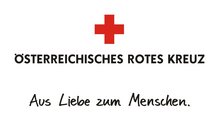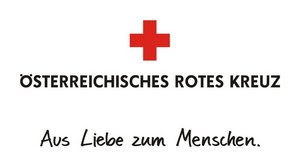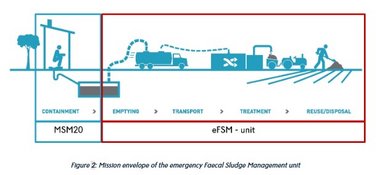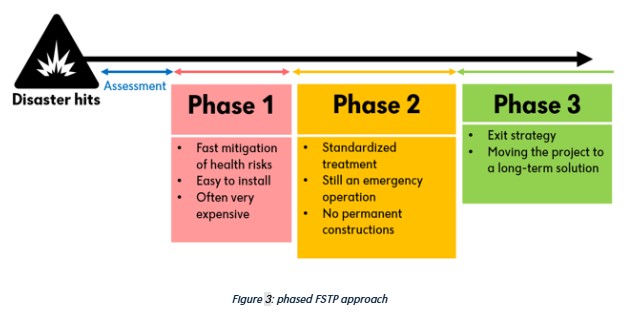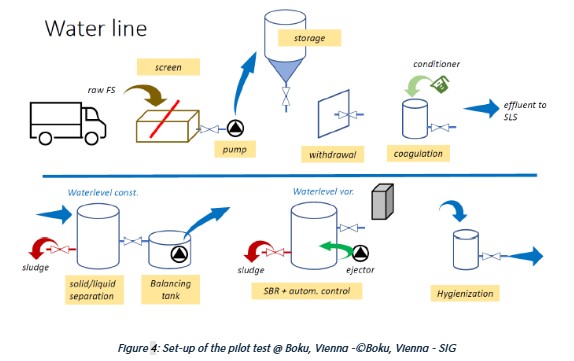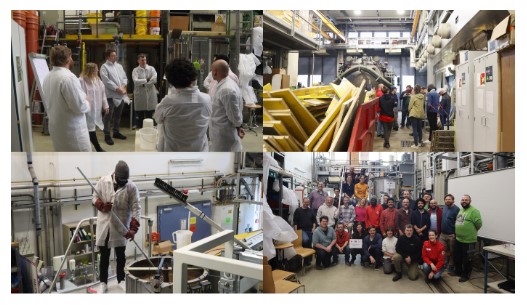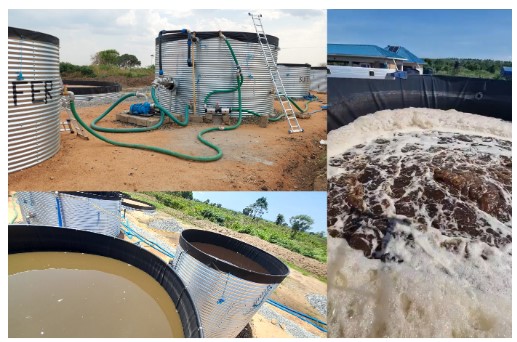The project, conducted from October 2021 to June 2025, aimed to strengthen the Red Cross Red Crescent (RCRC) movement’s capacity for emergency Faecal Sludge Management (FSM). The project’s goal was to improve the environmental and public health impact of humanitarian operations in urban and protracted crisis settings by developing a sustainable, globally deployable emergency sanitation solution. The project was conducted jointly with Academia, practitioners and National Societies. Funding came from multiple sources, including ECHO-IFRC PPP (main contribution), the Austrian, Netherlands, British, Swedish, and German Red Cross, and the project included both global and country-level activities, with a particular focus on Uganda (Figure 1).
Core Components and Innovations:
-
The centrepiece was the development of a standardized FSM unit, compatible with existing IFRC emergency modules (MSM 20 ERU), designed to serve up to 20,000 people (Figure 2). The FSM unit features multi-stage treatment: emergency lime treatment, aerobic biological treatment, and a sustainable, contextualized final stage (Figure 3).
-
Aerobic treatment was piloted in Vienna (BOKU University), demonstrating high efficiency in pollutant reduction and providing valuable insights for optimizing large-scale facilities (Figure 4). Lessons learned from the pilot directly informed the FSM unit’s further development.
-
Field testing in Uganda (Imvepi) validated the practicality of the technologies under challenging logistical conditions. Innovative emptying and transport equipment, as well as various solid-liquid separation methods, were evaluated and led to refinements in the final design1 (Figure 6).
Technology and Scaling Concepts:
-
For long-term deployments, a “Technology Decision Handbook” was developed to guide WASH officers in selecting Faecal Slduge Treatment Plant (FSTP) layouts and estimating costs. A modular FSTP concept for 2,500 people was also created, focusing on locally available materials and cost-efficient processes.
Human Resources and Training:
-
Specific job profiles were defined along the FSM service chain, and a multi-layered training concept was developed. Pilot trainings took place in Vienna (2023, Figure 6) and Uganda (2025, Figure 7), with continuous improvement based on participant feedback. Over 90 people from various regions were trained, building a global pool of FSM specialists.
Dissemination and Publications:
-
Project results were presented at international forums and platforms. A global exchange forum for FSTP and laboratory operators was established. All reports and scientific publications will be released on a dedicated project website by the end of 2025.
Conclusion: The project has significantly advanced emergency faecal sludge management solutions. The developed technologies and training concepts are field-tested and provide a robust foundation for future humanitarian operations. International collaboration and the integration of research and practice were key success factors.
Future: The eFSM basic training will be integrated into the Austrian Red Cross WASH ERU training schedule. Further specialisation trainings for the different job profiles for the eFSM unit will be developed. The field tested eFSM unit configuration will be available on the IFRC/ICRC Standard Products Catalogue. As the eFSM unit is considered a living and evolving project, when future funding is available further technical refinements can be undertaken.
